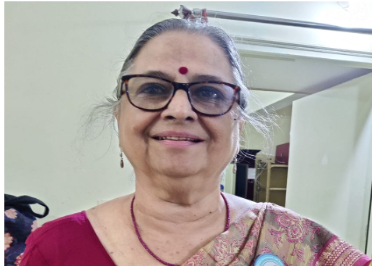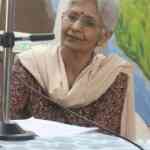How Caregiving Made Me Honest With Myself
“Caregiving changed me, making me more honest with myself.” — An author shares her journey of looking after two super seniors in her life.
It's 12.30 am. I'm awake and alert on the attendant's bed in the hospital. An elder at home has had surgery, minor but painful given her age. She takes a frustrated turn to make herself comfortable and, hesitantly because she feels terrible about interrupting my half nap once again, asks me to call the nurse. I move to her side with an involuntary sigh that mixes many things — the twilight zone of sleep, irritability, exhaustion and guilt that I'm feeling these.
Instinct tells me she feels the same too, caught as we both are in a situation we do not wish to be in — in multiple different ways.
I became a caregiver some years ago to two frail, dependent elders now living with us. Almost overnight, my family's world became different. At first, I didn't quite fathom the depth of care and work needed to look after two ailing elders in a multi-generational home. Yes, I chafed at the life adjustments that came, creeping upon us in multiple ways we hadn't even imagined. But naively I thought, I could handle it all, without breaking a sweat.
I'm sometimes an impatient woman. But with caregiving, I discovered compassion and even patience by the bucketload. I discovered shutting out the world with headphones when I needed to withdraw from the world of instructions and demands and focus on work. I became kinder.
But I also found a side that I didn't know existed.
I was rude at times. Not to the elders but to others around. I was irritable. I often wished I didn't have to do what I was doing and cook what I was cooking because their dietary demands called for it. And very often, I let it show on other family members.
Who exactly is a caregiver? Is it a term you assign to yourself only when you feed, bathe, and care for someone with a debilitating, progressive disease?
Does the term caregiver apply when you have the responsibility of someone's care always at the back of your mind? When it impacts your decisions; the weight shifting how you live your life and choose your plans. Does cooking food to suit older, fussier palates, making neat packets of white-yellow-pink pills and labelling them according to mealtimes, supervising help, working the phones to organise and manage groceries, medicines, attendants in eight-hour shifts, count as caregiving? Do missed work opportunities you don't have the time to take on make the cut?
Caregiving is a sum of all those parts.
It isn't only changing the dressing or supervising medication or rushing to the emergency room when the elder experiences what feels like chest pain. It is the minutes spent on the phone reaching out to a doctor to discuss side effects of a medication, maintaining checkup schedules and blood sugar readings. Listening to a laundry list of foods that induce nausea-bowel movement-heaviness and mentally deciding alternate meals. Stepping in to change a soiled nightie with the utmost dignity and love you can drum up for both of you.
Caregiving is about stocking the fridge with enough tomatoes because the elders at home couldn't do without those and making sure the larder always has Marie Biscuits and porridge stocked. They need those too. It is standing outside the bathroom door because the person inside would feel worse if you stepped in to help but confident because you're on standby.
These are things you can't always hire for.
Caregiving is the minute details that carry little time and effort on their own but add up to a voluminous to-do list. One that never gets over because it's always getting added to.
Globally the burden of caregiving mainly falls mainly on women. An ILO study on the global care crisis from 2018 told me that women from Asia and the Pacific spent 4.1 times more on unpaid care work than men. It would take 210 years to close the gender gap in unpaid care work, the study said. But the burden of caregiving is also more than those numbers. It is in the frustration of missed chances and the constant exhaustion that comes with it, given that the back of your mind is always a stacked-up checklist.
Quite unexpectedly, caregiving has been my biggest life lesson. I thought I was a blunt person. Caregiving has unmasked me and made me blunt with myself. It's ok not to feel ok about being there all the time, I tell myself. It's alright to have compassion fatigue, it’s perfectly human to wish you were anywhere but here.
It’s imperative to wear your oxygen mask first.
I've started drawing boundaries with the household around me, making my not-so-soothing voice heard. These bold, demarked parts are still quite fluid because spells of dizziness, hypoglycemia, chest pains, stomach ailments or the emotional support a vulnerable older adult needs, don't go by schedule.
Caregiving taught me that what we need to learn is to understand our limits and address them honestly. It has taught me to ask for help and admit that it's ok to manage only till the point of my capacity. Sometimes the help you wish for isn’t available but asking for it aloud helps get some load off your chest. Of course, I still slip and fall through the cracks that are hard to claw out of. But more often than not, I'm honest about the chinks in my armour and unafraid to show them- to myself.
And, to an extent, even to the family around me.
It makes me human and perhaps, even makes me a better caregiver.
Image courtesy: Milligerova/Pixabay
Have you been a caregiver or are you one now? Share your journey with us in the comment section below or email us on editor@silvertalkies.com
Comments

Lakshmi
14 Jul, 2023
so true what the author says. The care recipient also struggles with feelings of inadequacy, guilt and anger at their dependent state. There are no easy answers like ‘Be honest with the patient.’ We can’t. It is only by finding meaning in the caregiving that can make it bearable. Funding meaning and purpose in being there for they person at that time.

Sheetal Mehta
08 Jul, 2023
This is sooooo damn true and so well put. I know so many of us will relate to this. And only hope most of those can become this honest with self about our limits and boundaries. Love it!







Post a comment